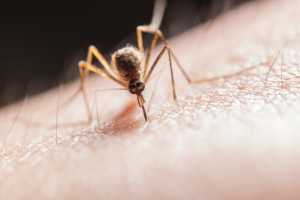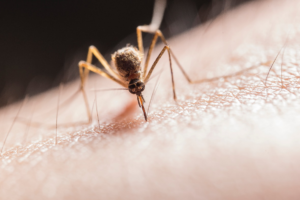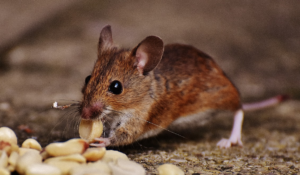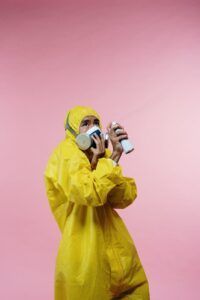Expert Advice From Our Pest Control Blog

Your home, a sanctuary of comfort and safety, might be playing host to unwanted guests—hidden pests that lurk in the shadows. These silent invaders can cause structural damage and pose health risks. In this blog, we’ll dive into the hidden pests identification signs. Let’s get started! Signs of Hidden Pest Infestation 1. Mysterious Sounds in […]
The post Are Silent Invaders Taking Over Your Home? Unraveling the Mystery of Hidden Pests appeared first on Xterminator Pest Control.

Ah, the joys of summer – the warm sun, the greenery, and the opportunity to enjoy your backyard to the fullest. But then come the mosquitoes, ready to turn your outdoor haven into their feeding ground. Fear not! In this blog, we’ve compiled the top seven mosquito control tips to ensure your backyard remains a mosquito-free […]
The post Beyond the Buzz: Mosquito Control Tips for a Bite-Free Summer appeared first on Xterminator Pest Control.

Ah, the great outdoors! There’s nothing quite like spending quality time in your backyard, basking in the warmth of the sun, and enjoying a barbecue with family and friends. But there’s one buzzkill we’d all rather avoid – those pesky mosquitoes. Fear not! In this blog, we’re going to explore seven effective mosquito prevention tips and […]
The post Top 7 Tips for a Mosquito-Free Backyard: Enjoy Outdoor Bliss! appeared first on Xterminator Pest Control.

We all love our homes, but sometimes, unseen guests can start causing trouble. Pests are notorious for invading our living spaces, and they’re not the type of guests we want. So, when should you consider a professional pest inspection? In this blog, we’ll explore five signs that indicate it’s time to call in the experts. […]
The post Is It Time for a Professional Pest Inspection? 5 Signs to Watch For appeared first on Xterminator Pest Control.

As the world becomes increasingly conscious of environmental issues, it’s no surprise that eco-friendly pest control methods are gaining popularity. Traditional pest control methods often involve the use of harmful chemicals that not only pose risks to our health but also harm the environment. Thankfully, there are alternative methods that can help you maintain a pest-free […]
The post Eco-Friendly Pest Control: Tips for a Greener, Healthier Home appeared first on Xterminator Pest Control.

Pests are unwelcome guests in any home, and understanding their lifecycles is crucial in the battle against these invaders. Common household pests such as ants, cockroaches, and mice have distinct lifecycles that allow them to thrive in our living spaces. By gaining insight into these lifecycles, you can develop effective strategies to keep your home pest-free. […]
The post The Lifecycle of Common Household Pests: Understanding Your Enemy appeared first on Xterminator Pest Control.

Imagine stepping into your garden, surrounded by vibrant blooms, lush greenery, and the soothing sounds of nature. Sounds like a dream, right? However, it can only last until common garden pests invade. But fear not, we’re here to help you transform your garden into a bug-free outdoor haven. Read on for tips on pest-proofing your […]
The post Pest-Proofing Your Garden: Tips for a Bug-Free Outdoor Haven appeared first on Xterminator Pest Control.

Picture this: you wake up in the morning with itchy, red bites all over your body. You’ve heard the horror stories, and now you’re wondering if your home has fallen victim to one of the most dreaded pests out there—bed bugs. But fear not, because, in this guide, we’ll arm you with the knowledge on […]
The post The Battle Against Bed Bugs: Prevention, Identification, and Treatment appeared first on Xterminator Pest Control.

When it comes to small flying insects like wasps and bees, many people often confuse the two due to their similar appearance. However, despite their physical similarities, wasps and bees are distinct creatures with unique characteristics and behaviors. Understanding the differences between these insects is crucial for homeowners and gardeners, as some species can pose […]
The post Wasps vs. Bees: Spotting the Difference appeared first on Xterminator Pest Control.

Butterflies, with their vibrant colors and delicate wings, have fascinated humans for centuries. These ethereal creatures are not only a joy to behold but also play a crucial role in our ecosystems. In this blog, we will delve into the remarkable lives of butterflies, understanding their life cycle, ecological importance, and the need to balance […]
The post Nature’s Tiny Architects: Exploring the Remarkable Lives of Butterflies appeared first on Xterminator Pest Control.
Ready to schedule your pest control service? Call 740-454-8000.






